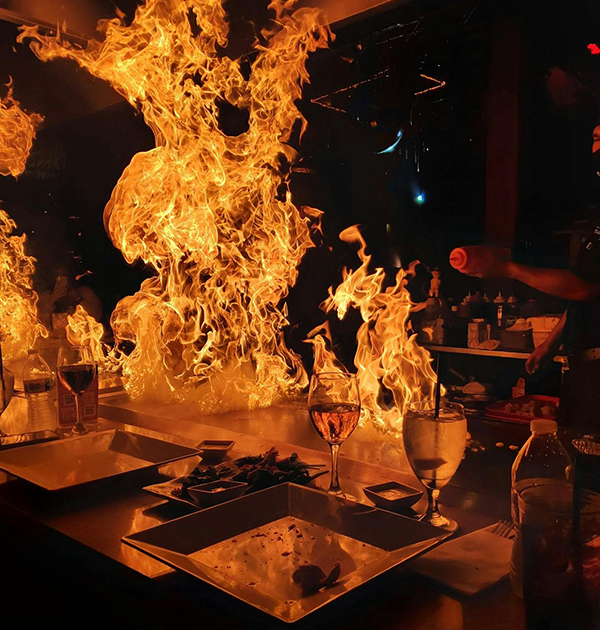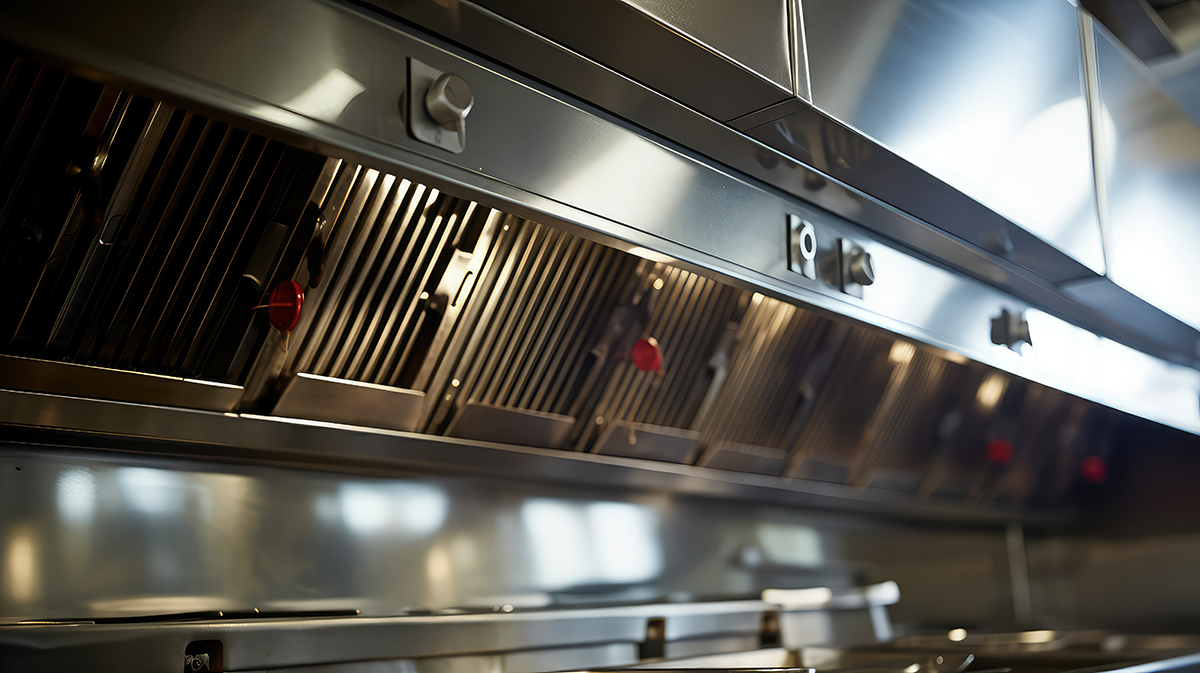Introduction to Restaurant Fire Risks: A Wake-Up Call for Orange County Eateries
Picture this: it’s the dinner rush at your Orange County restaurant. The kitchen’s buzzing, orders are flying, and suddenly, a spark ignites. Within minutes, flames engulf your stove, smoke chokes the dining room, and your dream business is gone—forever. Think it can’t happen to you? Think again. Every year, over 8,000 restaurant fires blaze across the U.S., racking up more than $246 million in damages, according to the National Fire Protection Association (NFPA). And here in Orange County—a hotspot for culinary creativity from Irvine to Huntington Beach—these risks hit close to home.
Many restaurant owners assume fire hazards are obvious: a flaming grill or a spilled fryer. But the real threats? They’re hidden, sneaky, and far more common than you’d expect. Grease creeping up your exhaust hoods, frayed wires behind the walls, or a forgotten pot on the stove—these silent dangers can shut you down faster than a bad Yelp review. Are you overlooking them in your kitchen right now?
The stakes are high. A fire doesn’t just mean financial loss; it’s lost jobs, ruined reputations, and, worst of all, endangered lives. Yet, here’s the silver lining: you can prevent disaster. By understanding the five hidden restaurant fire hazards plaguing Orange County kitchens and taking proactive steps, you’ll protect your business, your team, and your customers. In this guide, we’ll break down each risk, share real-world stats, and offer practical solutions—like installing top-tier fire suppression systems from Nationwide Fire Protection. Don’t wait for a wake-up call that comes too late. Call our Orange County fire safety experts at (714) 923-0608 for a free consultation today!
1. Grease Buildup and Poor Kitchen Ventilation: The Silent Killer
Why Grease is a Serious Fire Hazard
Grease fires aren’t just a kitchen nuisance—they’re a full-on catastrophe waiting to happen. Cooking oil, fat, and food residue don’t just vanish after a busy shift. They cling to your exhaust hoods, sneak into ductwork, and settle in grease traps, forming a sticky, flammable film. One stray spark or overheated pan, and this buildup turns into a raging inferno. Grease fires burn hotter and spread faster than most flames, often spiraling out of control before you can grab an extinguisher.
The numbers paint a grim picture. The NFPA reports that grease buildup sparks about 60% of all restaurant fires—more than any other cause. That’s over 4,800 incidents yearly, many in bustling hubs like Orange County, where kitchens crank out everything from sizzling fajitas to fried calamari. A single flare-up in a grease-clogged hood can climb through your ventilation system, torching your restaurant from the inside out. It’s not just dramatic—it’s a daily risk.
How Grease Fires Start: A Real-World Scenario
Let’s set the scene: it’s Friday night at your Costa Mesa eatery. Your fryer’s humming, churning out crispy wings for a packed house. A small oil spill hits the burner—nothing unusual. But if your exhaust system’s coated in grease, that tiny flame finds fuel. It races up the duct, feeding on months of neglect, and suddenly, your kitchen’s a firestorm. Firefighters arrive, but the damage is done: equipment’s ruined, staff are shaken, and customers are gone for good.
How to Prevent Restaurant Fires Caused by Grease
Stopping grease fires starts with diligence. Here’s your game plan:
- Schedule professional cleanings. Hire experts in restaurant ventilation and grease trap maintenance at least quarterly—or monthly for high-volume spots. Orange County health codes often demand it, so stay compliant.
- Wipe down daily. Train staff to clean surfaces, filters, and hoods after every shift. Don’t let grease pile up where you can’t see it.
- Install automatic fire suppression systems. These lifesavers detect grease fires and douse them with wet chemicals instantly. At Nationwide Fire Protection, we specialize in fire suppression systems in Orange County—call (714) 923-0608 to get yours.
- Educate your team. Teach employees to spot buildup and report it. A quick heads-up can prevent a disaster.
Grease Fire Myths Debunked
Think a fire extinguisher alone will save you? Think again. Grease fires laugh at water and resist basic extinguishers. Without proper systems, you’re playing with fire—literally. Invest in prevention, not regret.
2. Faulty Electrical Wiring and Equipment: The Invisible Threat
Common Electrical Restaurant Fire Hazards
Your kitchen’s a symphony of whirring appliances—ovens, fryers, blenders—all powered by electricity. But when that power goes rogue, it’s a silent killer. Faulty wiring, overloaded circuits, and worn-out gear cause over 1,000 restaurant fires annually, says the U.S. Fire Administration. In Orange County, where older buildings meet modern demands, these hazards are especially sneaky.
What’s at risk? Plenty:
- Frayed cords on high-use tools like griddles or microwaves.
- Overloaded outlets strained by too many plugs during peak hours.
- Outdated wiring in historic Laguna Beach or Santa Ana spots, not built for today’s loads.
- Ungrounded equipment sparking without warning.
These issues hide behind walls or under counters, making them tough to catch—until they ignite.
How Electrical Fires Ignite: A Cautionary Tale
Imagine this: it’s brunch at your Newport Beach café. Your ancient toaster’s cord—cracked from years of use—sparks. That spark hits a greasy rag, and flames leap to the counter. If your breaker’s overloaded, it won’t trip. The fire spreads, and by the time you smell smoke, it’s too late. Electrical fires don’t mess around—they thrive in chaos.
How to Mitigate Electrical Fire Risks
Don’t let bad wiring burn you out. Here’s how to stay safe:
- Inspect regularly. Book a licensed electrician yearly—or biannually for older buildings—to check wiring, outlets, and appliances.
- Maintain gear. Follow manufacturer upkeep rules. Replace anything outdated or glitchy—don’t patch it up.
- Hire pros. DIY electrical fixes are a gamble. Use certified experts for repairs or upgrades.
- Modernize if needed. Older Orange County spots might need new panels to handle today’s power needs—don’t skimp.
Our team at Nationwide Fire Protection collaborates with top electricians to ensure your kitchen meets restaurant fire safety standards. Call (714) 923-0608 for an electrical safety check today.
Why Electrical Fires Are Sneaky
Unlike grease fires, electrical blazes don’t always announce themselves with smoke. They can smolder in walls, unnoticed, until they burst out. Regular checks are your best defense.
3. Lack of Proper Fire Suppression Systems: Your Missing Shield
Importance of Restaurant Fire Suppression Systems
Picture a grease fire erupting in your Anaheim kitchen. No alarms, no sprinklers—just you, a fire extinguisher, and panic. Too many Orange County restaurants roll the dice without proper fire suppression systems, turning minor sparks into major tragedies. These systems automatically detect flames and release chemicals to smother them, especially in danger zones like fryers and grills.
The NFPA doesn’t mess around: fire suppression systems are mandatory in commercial kitchens for a reason. They’re your first—and often only—line of defense. A good system can snuff out a fire before it spreads, saving your business from ruin.

Why Orange County Restaurants Need Them
Our coastal climate and busy dining scene mean kitchens run hot and fast. Without suppression, a small flare-up can become a headline. The NFPA says kitchens with systems see 70% less fire damage than those without. That’s a stat worth betting on.
Ensuring Effective Fire Suppression
Here’s how to lock it down:
- Consult experts. Our team at Nationwide Fire Protection offers fire suppression systems in Orange County tailored to your setup. Call (714) 923-0608 to find the right fit.
- Inspect annually. Certified pros should check your system yearly to meet local codes.
- Maintain religiously. Test and service it regularly—it’s useless if it fails when you need it.
Real-Life Impact
In 2023, an Orange County diner avoided disaster when its suppression system kicked in, dousing a fryer fire before it hit the ceiling. No injuries, no closure—just a reminder to stay prepared.
4. Improper Storage of Flammable Materials: A Recipe for Disaster
Risks of Improper Storage
Oils, cleaning chemicals, paper towels—your kitchen’s full of flammable stuff. Store them wrong, and you’re begging for trouble. A bottle of degreaser near a stove or a stack of napkins by a grill can turn a small accident into a blazing nightmare. Spontaneous combustion isn’t a myth; it’s a risk in busy kitchens.
The NFPA flags improper storage as a top fire starter. In Orange County’s tight restaurant spaces, where every inch counts, it’s tempting to cram things wherever they fit. Don’t.
How Fires Spark From Storage
Say a rag soaked in cooking oil sits too close to a burner. Heat builds, and it ignites—no flame needed. Or a cleaning solvent’s fumes waft toward an open pilot light. Boom—your storage closet’s a fireball.
Best Storage Practices for Flammable Materials
Keep it safe:
- Use fireproof cabinets. Lock up oils, chemicals, and rags in rated storage units.
- Label everything. Clear tags prevent mix-ups and mishandling.
- Ventilate storage areas. Stop fumes from building up in tight spaces.
- Follow regulations. Stick to supplier and Orange County fire safety guidelines.
Nationwide Fire Protection can assess your storage setup—call (714) 923-0608 for a free review.
5. Unattended Cooking Equipment: The Preventable Mistake
The Danger of Unsupervised Cooking
It’s the simplest mistake with the worst consequences: leaving a stove or fryer unattended. The NFPA pegs this as a leading fire cause, especially during hectic shifts. A pot boils over, grease splashes, or a burner’s left on—suddenly, your kitchen’s ablaze.
In Orange County’s peak seasons, when tourists flood eateries, distractions multiply. One forgotten pan can end it all.
How It Happens
During a lunch rush in Fullerton, a chef steps away from a simmering pot. It overflows, hits the flame, and ignites. No one’s there to catch it, and the fire spreads. It’s preventable—but deadly common.
Preventing Fires from Unattended Equipment
Stay sharp:
- Supervise always. Keep eyes on cooking gear, especially fryers and grills.
- Install auto-shutoffs. Equip appliances with timers or sensors to cut power if unattended.
- Train staff. Drill your team on the risks and emergency steps—knowledge saves lives.
Frequently Asked Questions: Staying Ahead of Restaurant Fire Hazards
Q1: What’s the leading cause of restaurant fires?
Grease buildup tops the list, causing 60% of incidents per NFPA data. Regular cleaning slashes this risk.
Q2: How often should fire suppression systems be inspected?
Annually, by certified pros, to meet Orange County codes and ensure they work when it counts.
Q3: Can electrical inspections reduce fire hazards?
Yes! Spotting faulty wiring early can prevent sparks from turning deadly.
Q4: What’s the best fire suppression system for Orange County restaurants?
Wet chemical systems excel at grease fires—ask Nationwide Fire Protection for a custom fit.
Q5: How do I know if my storage is unsafe?
If flammables are near heat or unmarked, you’re at risk. Get a pro audit.
Protect Your Restaurant Today: Act Before It’s Too Late
Top 5 Prevention Tips at a Glance
- Clean grease regularly—don’t let it build up.
- Inspect wiring—catch electrical issues early.
- Install suppression systems—your kitchen’s shield.
- Store smart—keep flammables safe.
- Watch equipment—never leave it unattended.
Why Nationwide Fire Protection?
At Nationwide Fire Protection, we’ve got Orange County covered with fire sprinkler system installation and professional HVAC solutions. Protect your restaurant with systems built for safety and reliability. Call (714) 923-0608 or schedule online today—don’t wait for disaster to strike!

